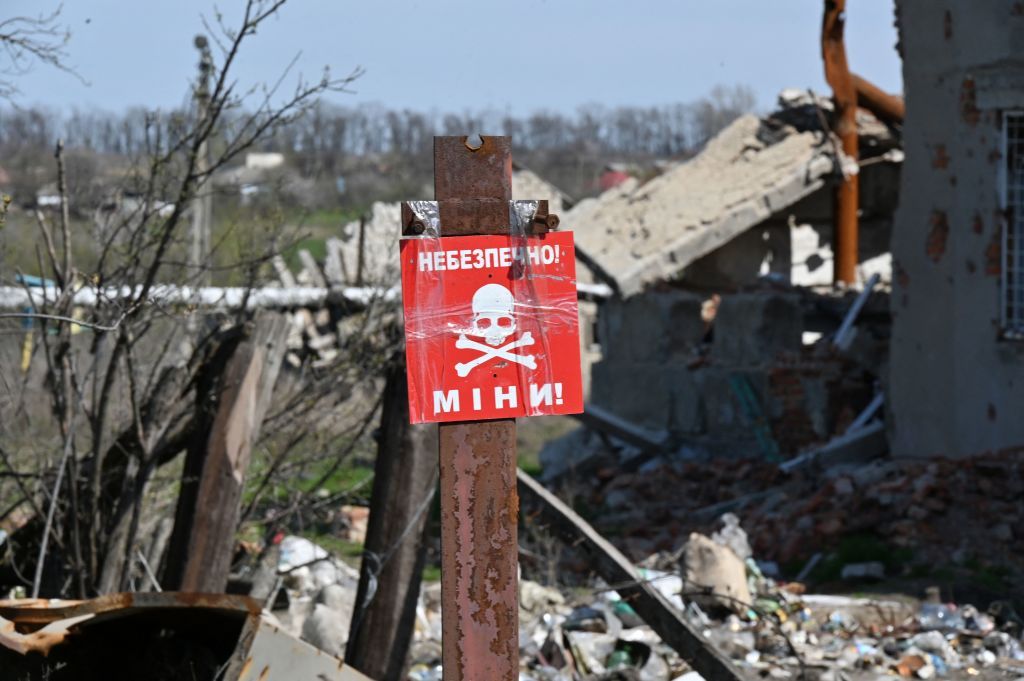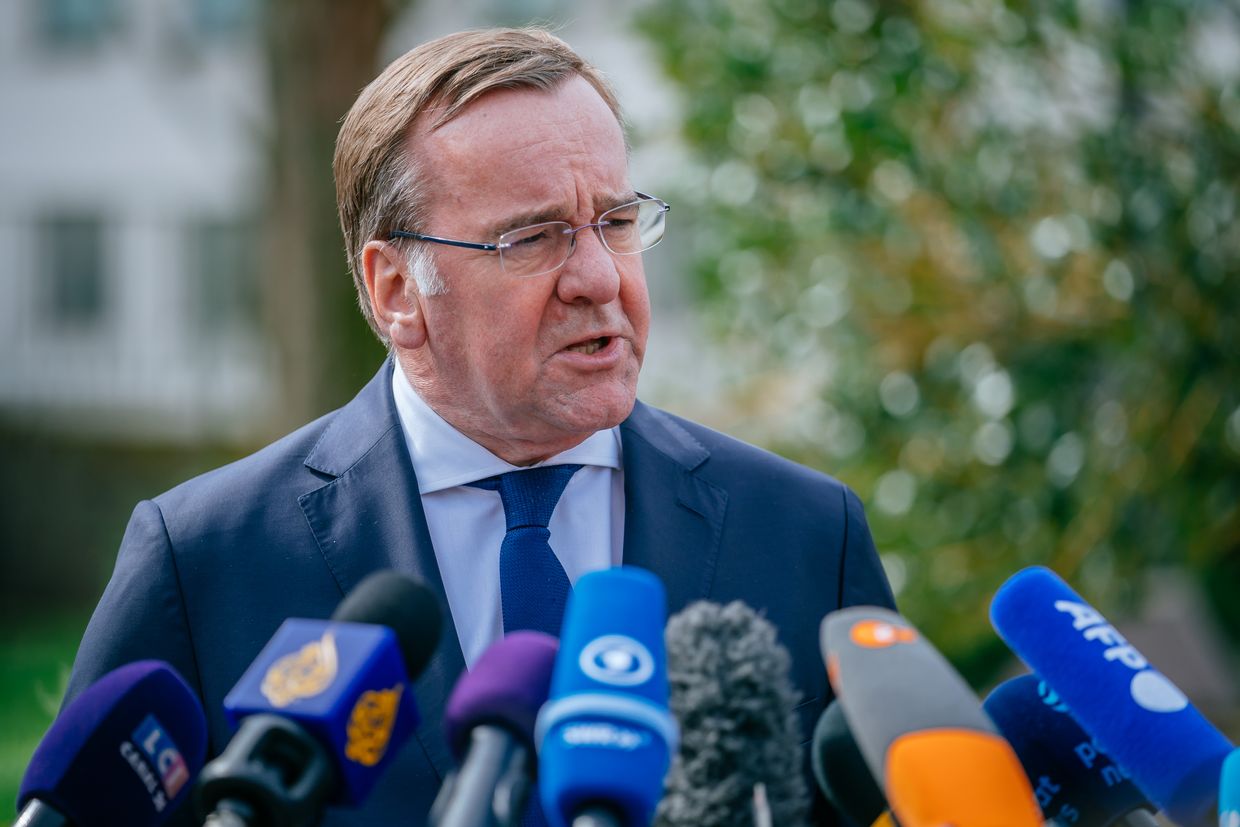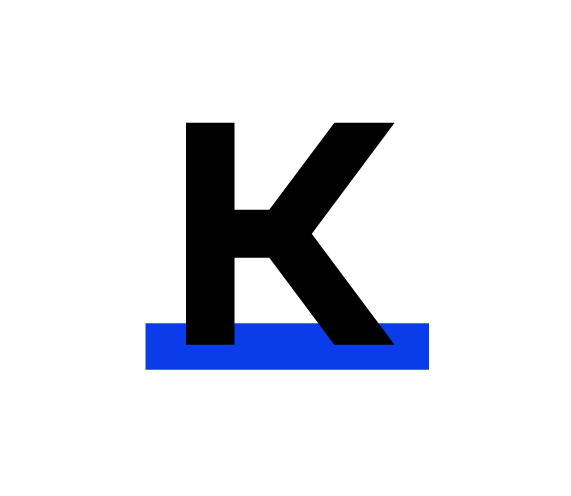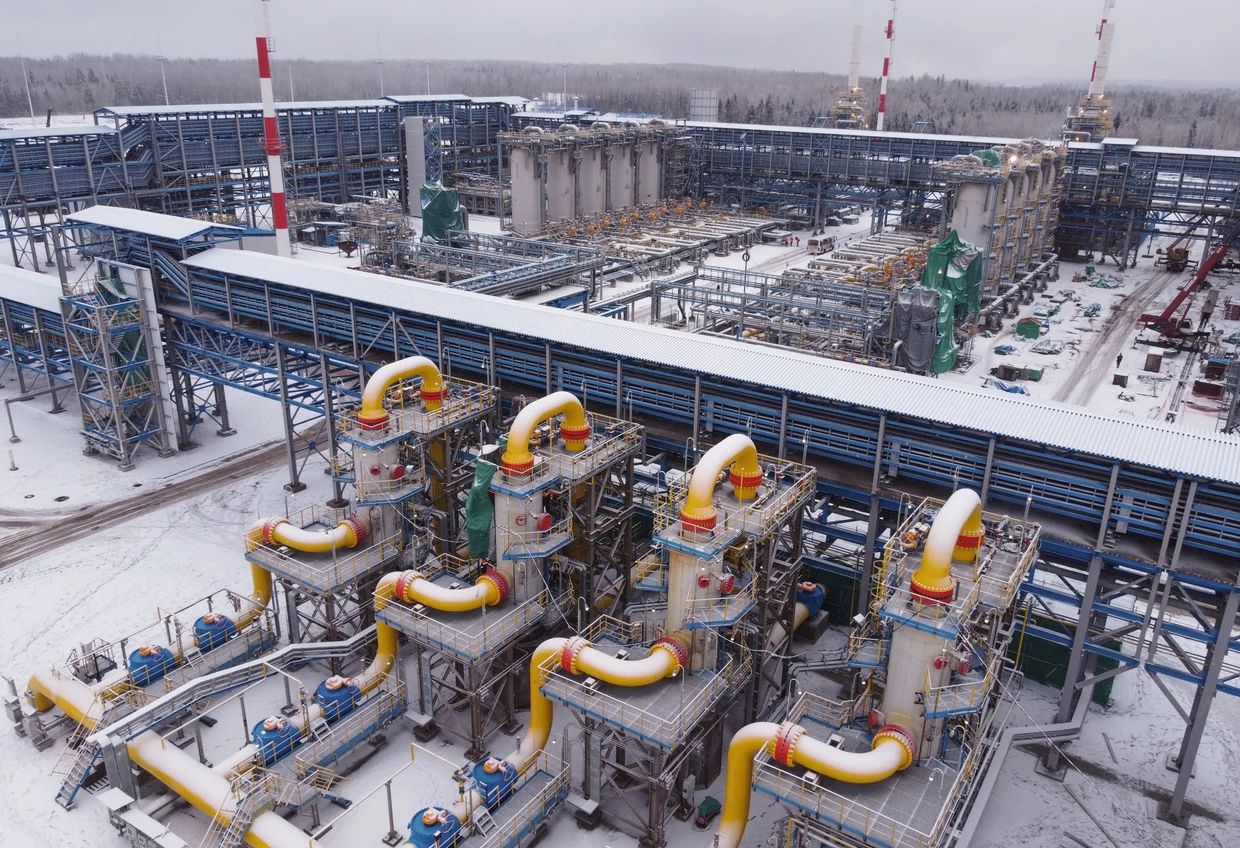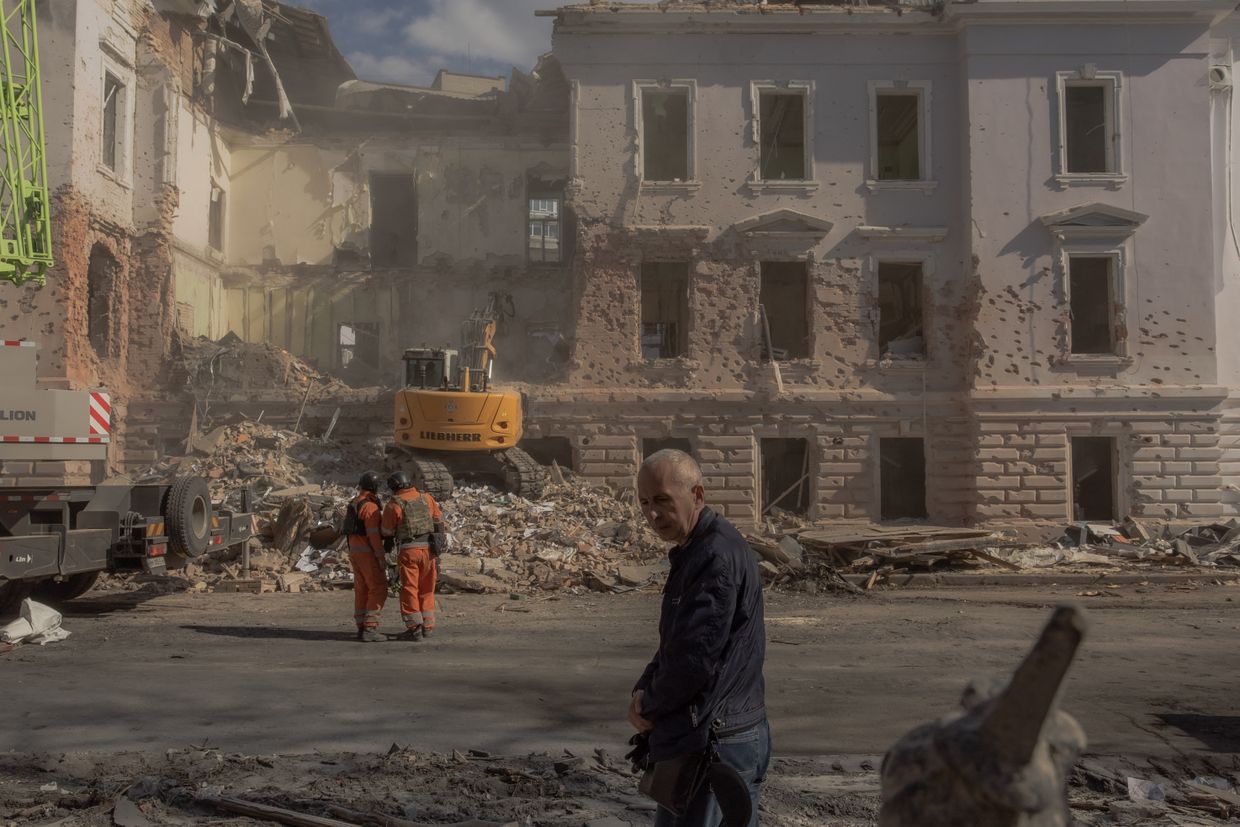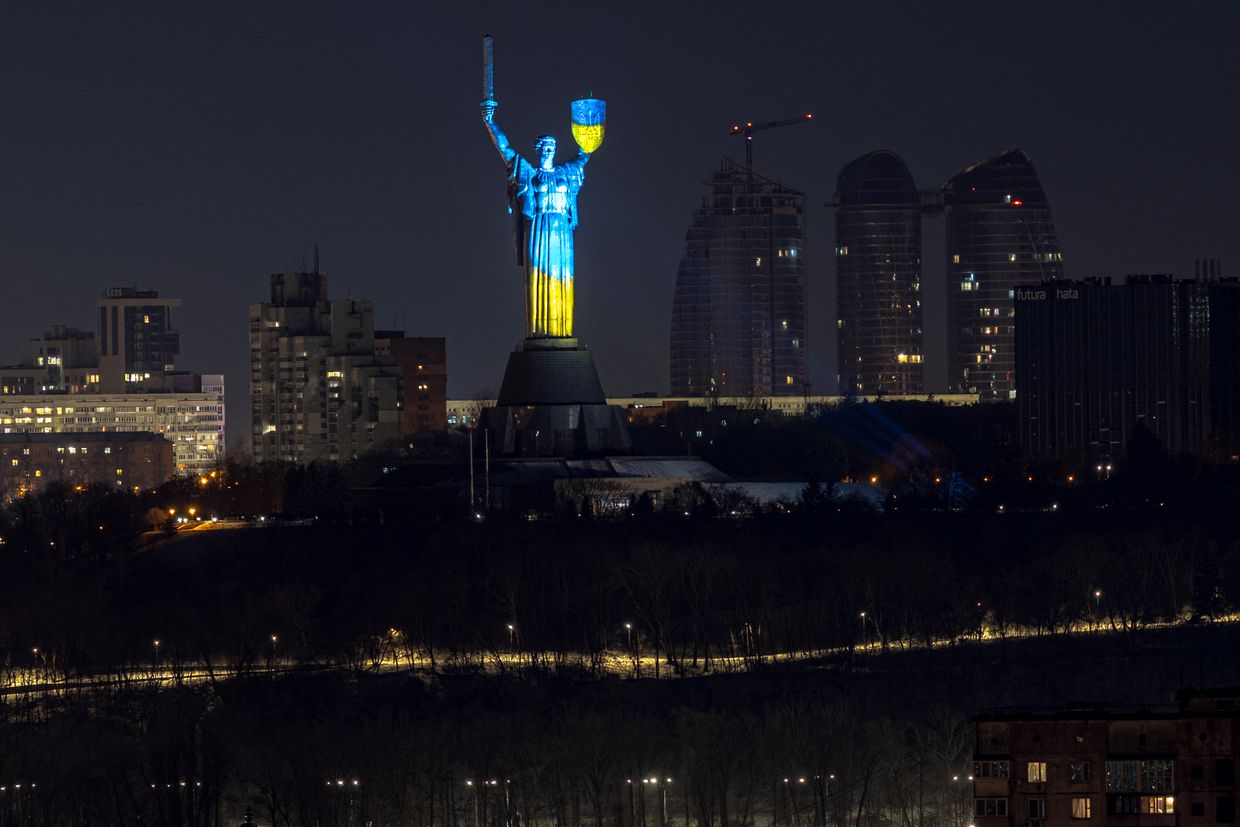Key developments on March 19:
- Germany announces aid package for Ukraine worth $540 million
- Anti-Kremlin militia claims fighting ongoing in Belgorod Oblast
- Gunvor: Russia has lost 600,000 barrels of daily oil-refining capacity due to drone attacks
- Shmyhal: Ukraine hopes to get enough shells by April
- Borrell proposes using 90% of Russian assets profits to buy arms for Ukraine
German Defense Minister Boris Pistorius announced a new aid package for Ukraine worth 500 million euros (roughly $540 million) at a Ukraine Defense Contact Group (UDCG) meeting in Ramstein, Germany, on March 19.
The meeting came at a precarious time for Ukraine and its allies, as Russia ramps up pressure along the front and $60 billion in aid from the U.S., a key military donor, remains stalled by disputes in Congress.
Germany's new package includes 10,000 artillery shells from the military stocks, as well as 100 armored vehicles for infantry and 100 logistical vehicles, Pistorius told reporters.
"We also continue to supply spare parts for systems that have already been delivered" and "large quantities" of medical supplies, he noted.
Germany will also finance the purchase of 180,000 artillery shells through the Czech-led initiative to supply ammunition to Ukraine, according to the minister. The delivery will take place gradually and begin this summer, he added.
The German defense minister said that during the Ramstein meeting, he spoke with his Ukrainian counterpart, Rustem Umerov, to discuss Kyiv's needs, namely munitions, air defense, and armored personnel carriers.
Initially a hesitant partner, Berlin has become Ukraine's second-largest military donor after the U.S. According to the Kiel Institute for the World Economy, Germany has supplied Ukraine with 17.7 billion euros (around $19 billion) in military assistance as of January.
Germany and Ukraine signed a long-term bilateral agreement in February, under which Berlin pledged to provide Kyiv with military assistance worth 7 billion euros ($7.6 billion) in 2024.
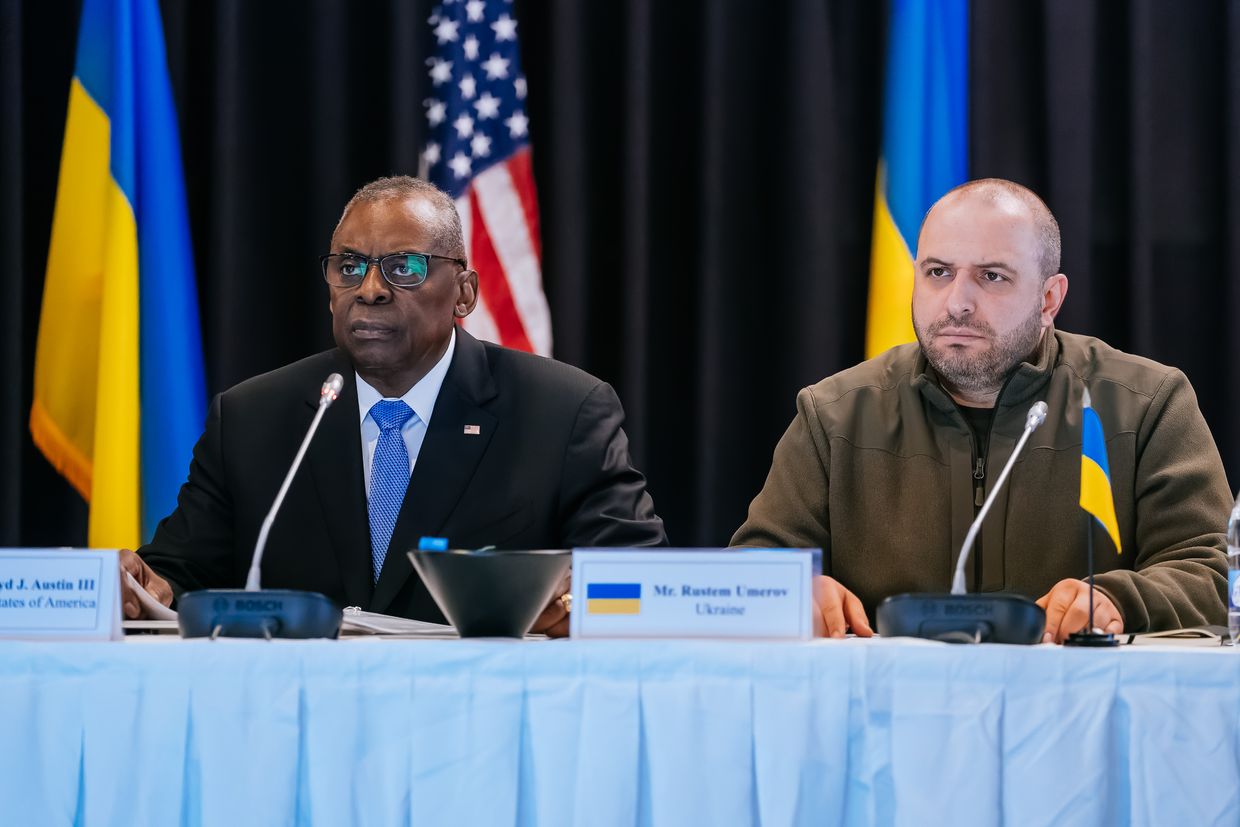
Anti-Kremlin militia claims fighting ongoing in Belgorod Oblast
One of the anti-Kremlin militias fighting in Russia's Belgorod Oblast claimed on March 19 that fighting is ongoing in the region and that it is continuing to take prisoners.
The Freedom of Russia Legion, the Siberian Battalion, and the Russian Volunteer Corps launched cross-border incursions into Russia's Belgorod and Kursk oblasts on March 12, allegedly resulting in clashes with Russian forces in several settlements.
The militias claimed to have captured 25 Russian soldiers on March 17 following their incursions, and the Siberian Battalion said it had taken control of the local administration building.
Speaking on Ukrainian TV on March 19, the commander of the anti-Kremlin armed group Russian Volunteer Corps, "Fortune," conceded that it had sustained losses, but nowhere near the 1,500 claimed by the Kremlin over the weekend.
“There are losses, but not on such a scale,” Fortune said, adding: “There are new Russian prisoners.”
He described intense combat in Belgorod Oblast and claimed it was having the desired effect on Russia’s forces both there and in Ukraine, saying: “We are using all the potential and reserves along the entire line of contact."
“The fighting is ongoing, the enemy’s casualty figures are constantly increasing," he said. “This means that we are achieving one of our goals – to pull back Russian troops from the front."
Fortune also claimed that “small numbers” of Russian special units had been deployed by the Kremlin to deal with the ongoing incursion.
Russia initially tried to play down the scale of the attack, which began last week, initially saying there were no hostilities in the region. In the days since, Russian authorities have been forced to acknowledge a series of strikes and attacks and have even begun the evacuation of children from the areas affected.
Kyrylo Budanov, Ukraine’s military intelligence chief, said on March 16 that Ukraine would help anti-Kremlin militias in their operations on Russian territory and support them “to the extent possible.”
Budanov noted that the militias have helped Ukraine from the beginning of Russia’s full-scale invasion and that they are no longer a “grouping," but are now “becoming a force.”
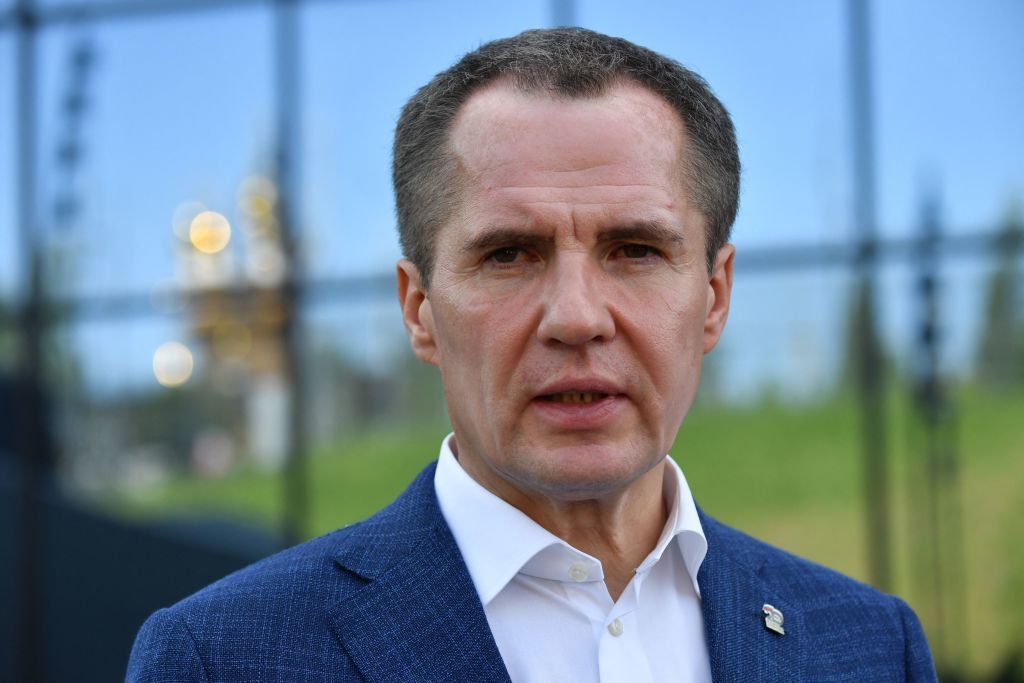
Gunvor: Russia has lost 600,000 barrels of daily oil-refining capacity due to drone attacks
Ukraine's recent drone attacks have knocked out about 600,000 barrels of Russia's daily oil-refining capacity, as estimated by Torbjorn Tornqvist, the director of the international energy commodities trading company Gunvor Group, Bloomberg reported on March 18.
In the past weeks, Ukrainian forces have launched a series of drone strikes aimed at damaging Russia's oil industry. Ukraine has hit oil refineries in multiple regions deep inside the Russian territory.
The strikes increased diesel futures for a fourth straight session while gasoline futures climbed for a sixth, according to Bloomberg.
"It is significant because obviously, this is gonna hit the distillate exports straight away," Tornqvist said in an interview.
"So that will probably take down exports by a couple of hundred thousand barrels, so to me, it's a distillate problem."
Gunvor Group was a major trader in Russian petroleum before the full-scale invasion of Ukraine but withdrew from the trade shortly after the all-out war started in February 2022.
Meanwhile, JPMorgan Chase & Co estimated that the Ukrainian attacks had disabled about 900,000 barrels per day of Russian oil refining capacity, wrote Bloomberg.
The Security Service of Ukraine (SBU) drones have recently successfully attacked 12 oil refineries in Russia, a source told Ukrainska Pravda on March 17.
Russian President Vladimir Putin had described the attacks as an attempt to disrupt the country's pseudo-democratic presidential election, which took place on March 15-17 and expectedly granted Putin the fifth term in office.
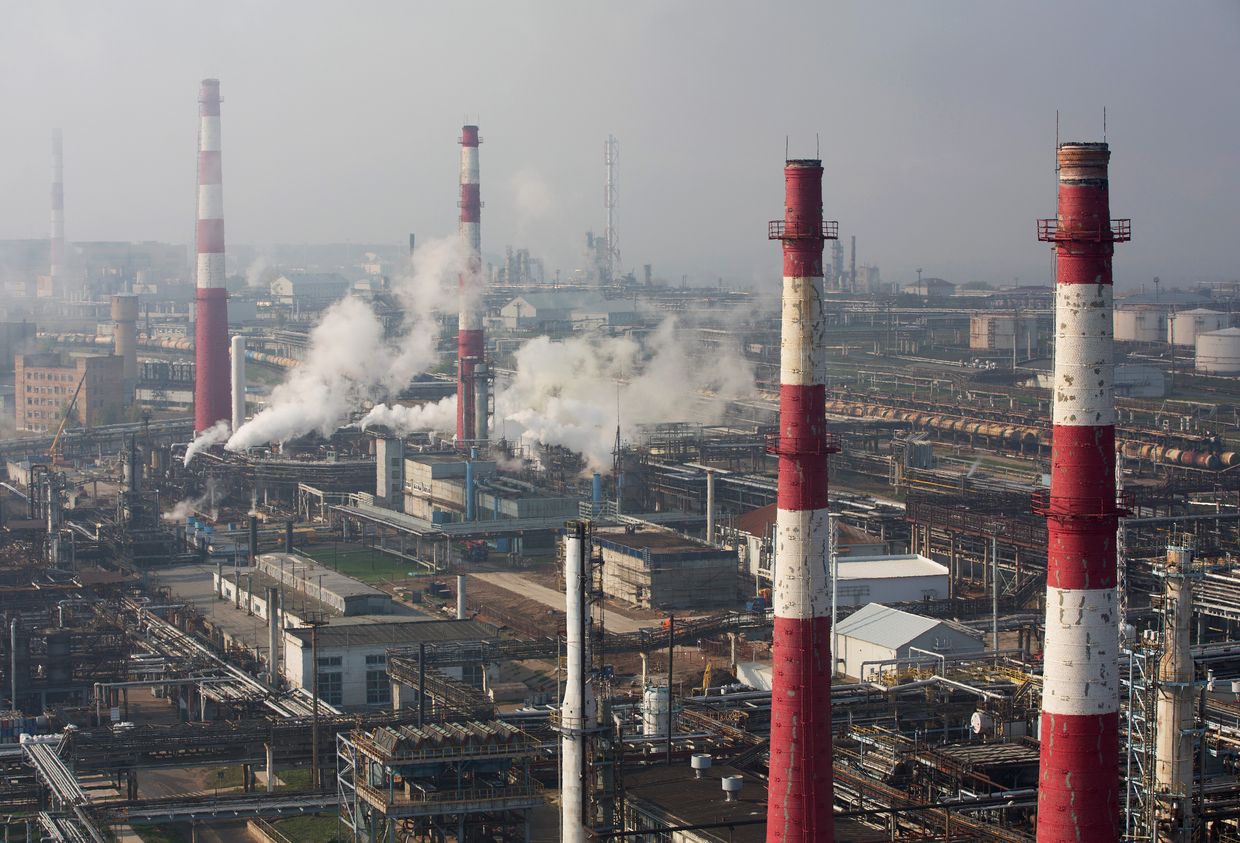
Shmyhal: Ukraine hopes to get enough shells by April
Kyiv hopes that Ukrainian soldiers will have enough ammunition by April, including thanks to deliveries from its allies, Prime Minister Denys Shmyhal said at a press conference during a visit to Luxembourg on March 19.
Ukraine is facing critical shell shortages, as $61 billion in funding from the U.S. remains stuck in Congress. Delays in military assistance have already had a direct impact on the battlefield, contributing to the loss of the key front-line city of Avdiivka.
Several European countries joined a Czech-led initiative to procure from non-EU countries 800,000 sorely needed artillery ammunition for Ukraine. The rounds could start flowing to Ukraine by June, according to Tomas Pojar, Czech prime minister's security advisor.
"We hope that this Czech initiative, which Luxembourg joined, will help us, and beginning since (from) April we will have enough ammunition to deter our frontline," Shmyhal said, according to The Guardian.
Ukraine also expects to get medium- and long-range missiles to cut Russian logistics in the occupied territories, the prime minister said.
"This is as important as artillery shells for us," Shmyhal added.
Since the beginning of 2024, Russia fires seven times more shells than Ukraine, according to Lieutenant General Ivan Havryliuk, Ukraine's deputy defense minister.
Moscow is producing close to 250,000 artillery munitions monthly, or around 3 million per year, which is nearly three times as many artillery munitions as the U.S. and Europe can send to Ukraine, CNN reported on March 11, citing NATO intelligence estimates and unnamed sources familiar with the matter.

Borrell wants to use 90% of Russian assets profits to buy arms for Ukraine
Josep Borrell, the EU's top diplomat, said he would propose to use 90% of the revenue generated by frozen Russian assets to purchase weapons for Ukraine via the European Peace Facility (EPF) fund, Radio Free Europe/Radio Liberty (RFE/RL) reported on March 19.
The remaining 10% would be allocated to the EU's budget to boost Ukraine's defense industry's capacities, Borrell told reporters in Brussels. The official said he would submit the proposal to member states on March 20, ahead of a summit starting the next day.
EU leaders recently agreed to launch a 5-billion-euro ($5.4 billion) defense fund for Ukraine within the framework of the EPF, the bloc's chief tool for financing Kyiv's military needs.
The $5.4-billion top-up has been long delayed by debates among the member states on how to best use the funds. Concurrently, European leaders have been leading discussions on what to do with billions in Russian assets frozen in EU accounts.
Ukraine's Western partners and other allies froze around $300 billion in Russian assets at the start of the full-scale invasion in 2022, with roughly two-thirds held at the Belgium-based financial services company Euroclear.
Bloomberg reported earlier on March 19 that Brussels had drafted a proposal that would allocate an estimated 3 billion ($3.3 billion) of profits generated by frozen assets per year for supporting Ukraine's defense industry and purchasing arms for the besieged country.
The proposal, which has to be approved by all member states, is expected to be discussed during the summit on March 21.
Assistance from Europe is ever more crucial now as U.S. aid has been effectively blocked for months due to internal political disputes, putting a heavy strain on Ukraine's defense efforts.
